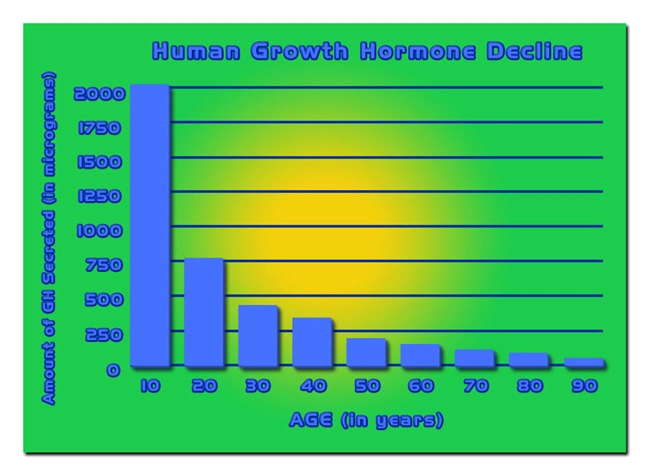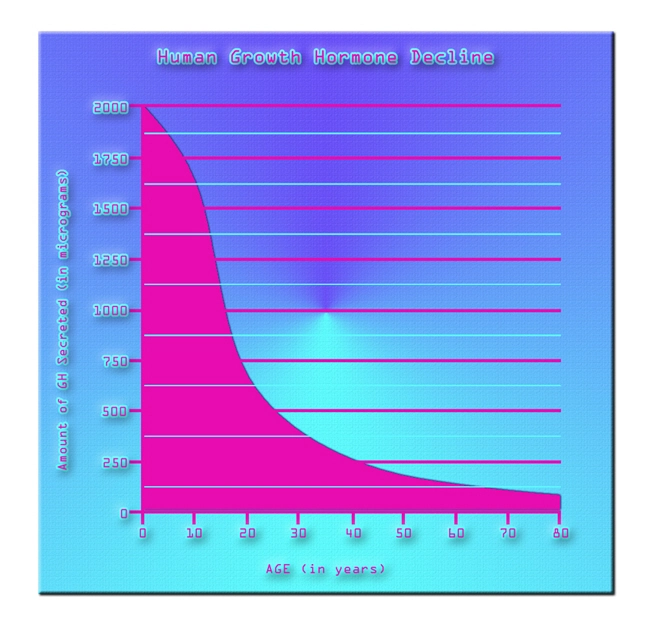
Introduction to Growth Hormone Deficiency
Growth hormone deficiency (GHD) is a medical condition characterized by the inadequate secretion of growth hormone from the pituitary gland. This deficiency can lead to a range of health issues, including short stature, delayed puberty, and metabolic disturbances. Among the populations most at risk are survivors of childhood cancer, who may have undergone treatments such as radiation therapy or chemotherapy that can impair pituitary function.
Understanding Genotropin
Genotropin is a recombinant human growth hormone (rhGH) that has been approved by the U.S. Food and Drug Administration (FDA) for the treatment of GHD. It is a synthetic version of the naturally occurring growth hormone, designed to mimic its effects on the body. Administered via subcutaneous injection, Genotropin stimulates growth and cell reproduction in children and adults with GHD.
Genotropin in Childhood Cancer Survivors
For survivors of childhood cancer, the onset of GHD can be a significant concern. These individuals may face additional challenges, such as increased risk of cardiovascular disease and reduced bone mineral density. Genotropin has emerged as a vital tool in the management of GHD in this population, helping to improve growth outcomes and overall quality of life.
Clinical Efficacy and Safety
Clinical studies have demonstrated the efficacy of Genotropin in promoting linear growth in children with GHD. In a study focusing on childhood cancer survivors, those treated with Genotropin showed significant improvements in height velocity compared to untreated controls. Moreover, Genotropin has been found to be generally well-tolerated, with the most common side effects being mild and transient, such as injection site reactions and headaches.
Long-Term Benefits
Beyond its immediate effects on growth, Genotropin offers long-term benefits for childhood cancer survivors. By addressing GHD, it can help mitigate the risk of metabolic syndrome, a cluster of conditions that increase the risk of heart disease, stroke, and type 2 diabetes. Additionally, Genotropin has been shown to improve body composition, increasing lean body mass and reducing fat mass, which is particularly important for cancer survivors who may be at risk of obesity.
Monitoring and Management
The use of Genotropin requires careful monitoring by healthcare professionals. Regular assessments of growth, metabolic markers, and potential side effects are essential to ensure the safe and effective use of the medication. For American males, who may be particularly concerned about the impact of GHD on their physical development and athletic performance, close collaboration with endocrinologists is crucial.
Psychosocial Considerations
The psychosocial impact of GHD should not be underestimated, especially among young male survivors of childhood cancer. The use of Genotropin can play a significant role in enhancing self-esteem and social functioning by improving physical appearance and reducing the stigma associated with short stature. Support from family, peers, and healthcare providers is vital in navigating the emotional challenges that may accompany GHD.
Conclusion
Genotropin represents a cornerstone in the management of growth hormone deficiency among survivors of childhood cancer. Its ability to promote growth, improve metabolic health, and enhance quality of life makes it an invaluable treatment option. For American males affected by GHD, Genotropin offers hope and a pathway to a healthier, more fulfilling life. As research continues to evolve, the role of Genotropin in the care of childhood cancer survivors will likely expand, further solidifying its importance in the field of endocrinology.
Contact Us Today For A Free Consultation
Dear Patient,
Once you have completing the above contact form, for security purposes and confirmation, please confirm your information by calling us.
Please call now: 1-800-380-5339.
Welcoming You To Our Clinic, Professor Tom Henderson.

- Unveiling the Potential of Genotropin: A Comprehensive Review of Clinical Trials and Outcomes [Last Updated On: February 21st, 2025] [Originally Added On: February 21st, 2025]
- Exploring the Impact of Genotropin on Metabolic Health in American Adult Males [Last Updated On: February 26th, 2025] [Originally Added On: February 26th, 2025]
- Genotropin Improves Lipid Profiles in American Males with Growth Hormone Deficiency [Last Updated On: March 12th, 2025] [Originally Added On: March 12th, 2025]
- Unveiling the Potential of Genotropin in Managing Idiopathic Short Stature in American Males [Last Updated On: March 15th, 2025] [Originally Added On: March 15th, 2025]
- Exploring the Efficacy of Genotropin in Treating Growth Hormone Deficiency Among American Males with Sleep Disorders [Last Updated On: March 16th, 2025] [Originally Added On: March 16th, 2025]
- Exploring the Effects of Genotropin on Lung Function in Growth Hormone Deficient American Males [Last Updated On: March 16th, 2025] [Originally Added On: March 16th, 2025]
- Exploring the Role of Genotropin in Treating Growth Hormone Deficiency and Osteoporosis in American Males [Last Updated On: March 16th, 2025] [Originally Added On: March 16th, 2025]
- Exploring the Impact of Genotropin on Exercise Performance in Growth Hormone Deficient American Males [Last Updated On: March 16th, 2025] [Originally Added On: March 16th, 2025]
- Unlocking the Potential of Genotropin Therapy: Overcoming Psychological Barriers in American Males [Last Updated On: March 16th, 2025] [Originally Added On: March 16th, 2025]
- Exploring the Impact of Genotropin on Bladder Function in American Males with Growth Hormone Deficiency [Last Updated On: March 16th, 2025] [Originally Added On: March 16th, 2025]
- Genotropin Therapy: Transitioning American Males from Pediatric to Adult Care [Last Updated On: March 16th, 2025] [Originally Added On: March 16th, 2025]
- Genotropin: Enhancing Growth and Quality of Life in SGA Children [Last Updated On: March 17th, 2025] [Originally Added On: March 17th, 2025]
- Optimizing Genotropin Therapy Compliance for American Males: Strategies and Support [Last Updated On: March 18th, 2025] [Originally Added On: March 18th, 2025]
- Genotropin: A Breakthrough in Treating Short Bowel Syndrome in American Males [Last Updated On: March 18th, 2025] [Originally Added On: March 18th, 2025]
- Genotropin: Pharmacokinetics, Pharmacodynamics, and Clinical Use in American Males with GHD [Last Updated On: March 18th, 2025] [Originally Added On: March 18th, 2025]
- Genotropin's Impact on Cognitive Function in American Males with Growth Hormone Deficiency [Last Updated On: March 19th, 2025] [Originally Added On: March 19th, 2025]
- Genotropin: Enhancing Vitality in Elderly American Males with Growth Hormone Deficiency [Last Updated On: March 19th, 2025] [Originally Added On: March 19th, 2025]
- Genotropin: Enhancing Growth in American Males with Various Disorders [Last Updated On: March 20th, 2025] [Originally Added On: March 20th, 2025]
- Genotropin's Impact on Cardiovascular Health in American Men with Growth Hormone Deficiency [Last Updated On: March 20th, 2025] [Originally Added On: March 20th, 2025]
- Genotropin: Enhancing Life Quality in American Males with Adult-Onset Growth Hormone Deficiency [Last Updated On: March 21st, 2025] [Originally Added On: March 21st, 2025]
- Genotropin Therapy: Debunking Myths and Clarifying Benefits for American Males [Last Updated On: March 21st, 2025] [Originally Added On: March 21st, 2025]
- Managing Genotropin Side Effects in American Males: Strategies and Tips [Last Updated On: March 21st, 2025] [Originally Added On: March 21st, 2025]
- Genotropin Boosts Immune Function in Growth Hormone Deficient American Males [Last Updated On: March 22nd, 2025] [Originally Added On: March 22nd, 2025]
- Genotropin: Effective GH Therapy for Post-Radiation Growth Hormone Deficiency in Males [Last Updated On: March 22nd, 2025] [Originally Added On: March 22nd, 2025]
- Genotropin: Enhancing Life Quality in American Males with Hypopituitarism [Last Updated On: March 22nd, 2025] [Originally Added On: March 22nd, 2025]
- Genotropin: A Targeted Treatment for Growth Hormone Deficiency in American Males [Last Updated On: March 22nd, 2025] [Originally Added On: March 22nd, 2025]
- Genotropin: Enhancing Sleep Quality in American Men with Growth Hormone Deficiency [Last Updated On: March 22nd, 2025] [Originally Added On: March 22nd, 2025]
- Genotropin Boosts Exercise Capacity in American Men with Growth Hormone Deficiency [Last Updated On: March 23rd, 2025] [Originally Added On: March 23rd, 2025]
- Genotropin's Cost-Effectiveness for American Males with Growth Hormone Deficiency [Last Updated On: March 23rd, 2025] [Originally Added On: March 23rd, 2025]
- Genotropin Therapy: Enhancing Growth and Life Quality in American Males with GHD [Last Updated On: March 23rd, 2025] [Originally Added On: March 23rd, 2025]
- Genotropin's Role in Managing Growth Hormone Deficiency in HIV-Positive American Males [Last Updated On: March 23rd, 2025] [Originally Added On: March 23rd, 2025]
- Genotropin: Enhancing Growth in American Males with Craniopharyngioma-Induced GHD [Last Updated On: March 23rd, 2025] [Originally Added On: March 23rd, 2025]
- Genotropin Therapy: Enhancing Growth in American Boys with Hormone Deficiency [Last Updated On: March 23rd, 2025] [Originally Added On: March 23rd, 2025]
- Genotropin: Enhancing Recovery from TBI-Induced Growth Hormone Deficiency in American Males [Last Updated On: March 24th, 2025] [Originally Added On: March 24th, 2025]
- Genotropin: Enhancing Growth in American Males with Sickle Cell Disease and GHD [Last Updated On: March 24th, 2025] [Originally Added On: March 24th, 2025]
- Genotropin's Impact on Vision in American Men with Growth Hormone Deficiency: A Review [Last Updated On: March 25th, 2025] [Originally Added On: March 25th, 2025]
- Genotropin's Impact on Quality of Life in American Males with Turner Syndrome [Last Updated On: March 25th, 2025] [Originally Added On: March 25th, 2025]
- Genotropin Enhances Skin Health in American Men with Growth Hormone Deficiency [Last Updated On: March 25th, 2025] [Originally Added On: March 25th, 2025]
- Strategies to Boost Genotropin Adherence in American Adolescent Males [Last Updated On: March 25th, 2025] [Originally Added On: March 25th, 2025]
- Genotropin's Impact on Reproductive Health in American Males with GHD [Last Updated On: March 25th, 2025] [Originally Added On: March 25th, 2025]
- Genotropin's Efficacy and Safety in Diabetic American Males with Growth Hormone Deficiency [Last Updated On: March 25th, 2025] [Originally Added On: March 25th, 2025]
- Genotropin's Impact on Dental Health in American Males with Growth Hormone Deficiency [Last Updated On: March 25th, 2025] [Originally Added On: March 25th, 2025]
- Genotropin Use in American Males with Growth Hormone Deficiency and Asthma: A Tailored Approach [Last Updated On: March 26th, 2025] [Originally Added On: March 26th, 2025]
- Genotropin's Role in Managing Growth Hormone Deficiency in American Males with Down Syndrome [Last Updated On: March 26th, 2025] [Originally Added On: March 26th, 2025]
- Genotropin: Enhancing Life for Adults with Growth Hormone Deficiency [Last Updated On: March 26th, 2025] [Originally Added On: March 26th, 2025]
- Genotropin's Impact on Emotional Well-Being in American Boys with Growth Hormone Deficiency [Last Updated On: March 26th, 2025] [Originally Added On: March 26th, 2025]
- Genotropin's Role in Treating Growth Hormone Deficiency and Rheumatoid Arthritis in American Males [Last Updated On: March 26th, 2025] [Originally Added On: March 26th, 2025]
- Genotropin: Enhancing Growth and Cognitive Function in American Males with GHD and ADHD [Last Updated On: March 26th, 2025] [Originally Added On: March 26th, 2025]
- Genotropin: Enhancing Quality of Life in Males with GHD and Pituitary Tumors [Last Updated On: March 26th, 2025] [Originally Added On: March 26th, 2025]
- Genotropin Therapy Enhances Growth in American Males with Epilepsy and GHD [Last Updated On: March 27th, 2025] [Originally Added On: March 27th, 2025]
- Genotropin's Impact on Kidney Function in American Males with Growth Hormone Deficiency [Last Updated On: March 27th, 2025] [Originally Added On: March 27th, 2025]
- Genotropin's Role in Managing Growth Hormone Deficiency in Cystic Fibrosis Patients [Last Updated On: March 27th, 2025] [Originally Added On: March 27th, 2025]
- Managing Growth Hormone Deficiency Transition with Genotropin: Strategies for Adult Care [Last Updated On: March 27th, 2025] [Originally Added On: March 27th, 2025]
- Genotropin Therapy: Personalized Growth Hormone Treatment for American Males [Last Updated On: March 27th, 2025] [Originally Added On: March 27th, 2025]
- Genotropin's Impact on Hearing in American Boys with Growth Hormone Deficiency [Last Updated On: March 28th, 2025] [Originally Added On: March 28th, 2025]
- Optimizing Genotropin Therapy with Tailored Nutrition for American Males with GHD [Last Updated On: March 28th, 2025] [Originally Added On: March 28th, 2025]
- Genotropin's Role in Treating GHD in American Males with ASD: Efficacy and Safety [Last Updated On: March 29th, 2025] [Originally Added On: March 29th, 2025]
- Genotropin: Enhancing Growth and Well-being in GHD with Thyroid Disorders [Last Updated On: March 30th, 2025] [Originally Added On: March 30th, 2025]
- Genotropin Enhances Hair Growth in American Men with Growth Hormone Deficiency [Last Updated On: March 30th, 2025] [Originally Added On: March 30th, 2025]
- Overcoming Psychological Barriers to Genotropin Therapy in American Males [Last Updated On: March 30th, 2025] [Originally Added On: March 30th, 2025]
- Genotropin Therapy Essentials for American Males with Growth Hormone Deficiency [Last Updated On: April 1st, 2025] [Originally Added On: April 1st, 2025]
- Genotropin: A Promising Treatment for GHD and Obesity in American Males [Last Updated On: April 3rd, 2025] [Originally Added On: April 3rd, 2025]
- Genotropin's Role in Treating GHD and CFS in American Males: A Comprehensive Overview [Last Updated On: April 4th, 2025] [Originally Added On: April 4th, 2025]
- Genotropin Enhances Lung Function in American Males with Growth Hormone Deficiency [Last Updated On: April 5th, 2025] [Originally Added On: April 5th, 2025]
- Genotropin's Impact on Liver Function in American Men with Growth Hormone Deficiency [Last Updated On: April 7th, 2025] [Originally Added On: April 7th, 2025]
- Genotropin's Efficacy in Treating Fibromyalgia and GHD in American Males [Last Updated On: April 8th, 2025] [Originally Added On: April 8th, 2025]
- Genotropin's Role in Managing Osteoporosis in American Males with Growth Hormone Deficiency [Last Updated On: April 9th, 2025] [Originally Added On: April 9th, 2025]
- Genotropin Therapy: Enhancing Communication for American Males' Treatment Success [Last Updated On: April 9th, 2025] [Originally Added On: April 9th, 2025]
- Genotropin: A Dual Treatment for Growth Hormone Deficiency and Anemia in American Males [Last Updated On: April 9th, 2025] [Originally Added On: April 9th, 2025]
- Genotropin's Role in Managing Growth Hormone Deficiency in American Males with MS [Last Updated On: April 10th, 2025] [Originally Added On: April 10th, 2025]
- Genotropin Therapy for GHD in Males: Ethical Considerations and Autonomy [Last Updated On: April 11th, 2025] [Originally Added On: April 11th, 2025]
- Genotropin: Managing Growth Hormone Deficiency in Hypertensive American Males [Last Updated On: April 12th, 2025] [Originally Added On: April 12th, 2025]
- Genotropin Enhances Joint Health in American Men with Growth Hormone Deficiency [Last Updated On: April 13th, 2025] [Originally Added On: April 13th, 2025]
- Overcoming Cultural Barriers to Genotropin Therapy in American Males [Last Updated On: April 15th, 2025] [Originally Added On: April 15th, 2025]
- Genotropin's Impact on Digestive Health in American Males with GHD [Last Updated On: April 15th, 2025] [Originally Added On: April 15th, 2025]
- Genotropin: Treating Growth Hormone Deficiency and Sleep Disorders in American Males [Last Updated On: April 15th, 2025] [Originally Added On: April 15th, 2025]
- Genotropin: Effective GHD Treatment for American Males with Allergies [Last Updated On: April 17th, 2025] [Originally Added On: April 17th, 2025]
- Genotropin's Dual Efficacy in Treating GHD and Anxiety in American Males [Last Updated On: April 17th, 2025] [Originally Added On: April 17th, 2025]
- Genotropin's Role in Treating GHD and Migraines in American Males: Benefits and Considerations [Last Updated On: April 18th, 2025] [Originally Added On: April 18th, 2025]
- Genotropin Therapy and Complementary Approaches for GHD in American Males [Last Updated On: April 18th, 2025] [Originally Added On: April 18th, 2025]









